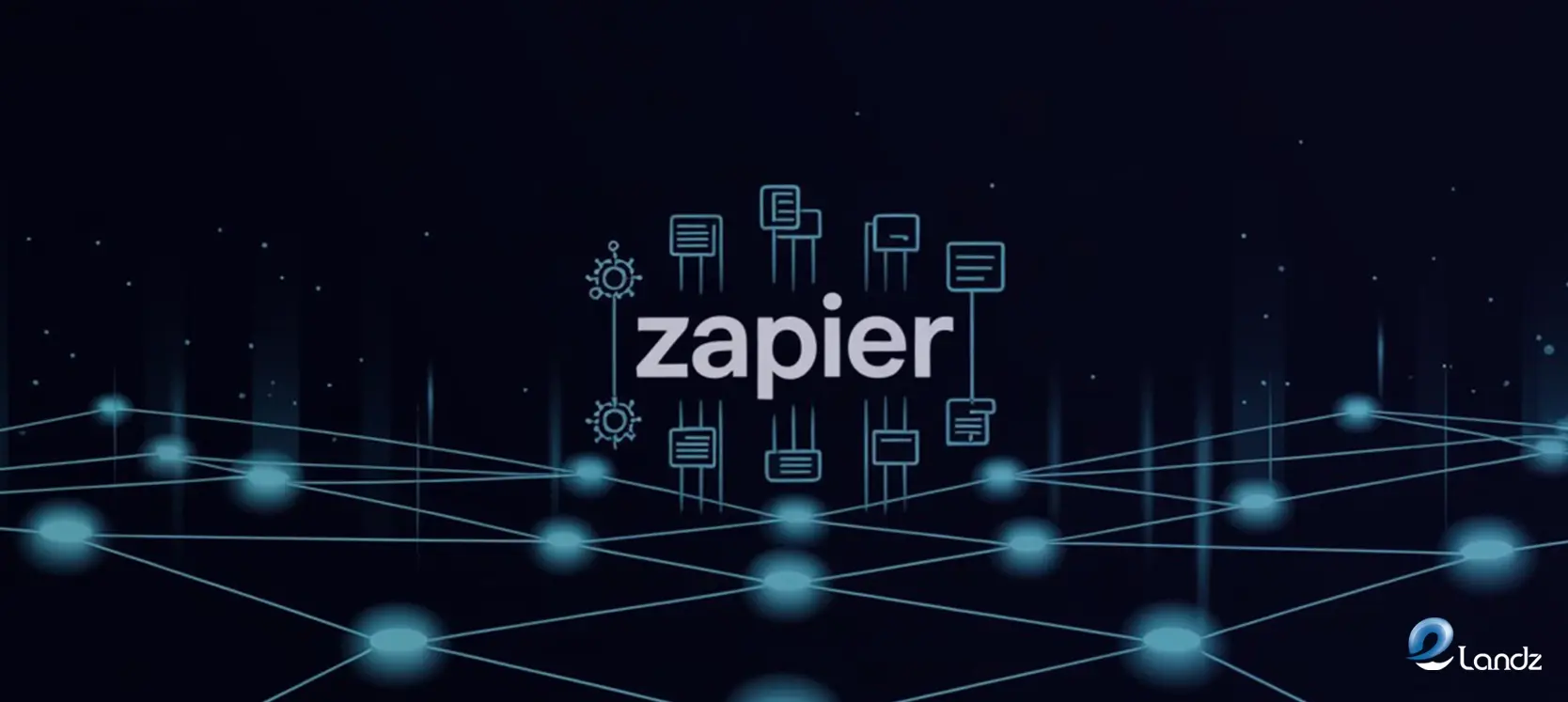
Top 15 Zapier Alternatives for Streamlined Business Automation
19 Aug 2025Introduction
Are you looking for Zapier alternatives? The global business process automation market is projected to grow from $13 billion in 2024 to $32.59 billion by 2031, demonstrating the significant value businesses place on these tools. While Zapier leads the market, many companies need different features, better pricing, or specific functions that other tools provide better.
31% of businesses have fully automated at least one key business function, proving that automation isn’t just a trend; it’s essential for staying competitive. However, Zapier’s pricing can hurt smaller businesses and startups that need powerful automation without breaking their budgets.
This guide covers the top 15 Zapier alternatives that offer excellent automation features at different price points. Each
Make (Formerly Integromat)

Make stands out as one of the most popular Zapier alternatives. This visual automation platform helps users create complex workflows with its drag-and-drop interface. Make supports over 1,000 apps and offers 6,000 ready-to-use automated flows.
Key Features:
- Visual, no-code workflow builder with conditional logic
- Shared workspaces for team collaboration
- Unlimited active scenarios in the starter plan
- Advanced data manipulation tools
- Real-time execution monitoring
- Custom webhooks and API connections
Make offers better value than Zapier with its starter plan at $9 per month for 10,000 operations. This beats Zapier’s $19.99 plan, that only includes 750 tasks.
Microsoft Power Automate
Microsoft Power Automate excels for businesses already using Microsoft 365. This enterprise-grade platform combines artificial intelligence with automation to create smart workflows. The tool integrates seamlessly with Office apps like Excel, Teams, and Outlook.
Key Features:
- AI-powered automation suggestions
- Deep Microsoft 365 integration
- Enterprise-level security features
- Process advisor for optimization
- Desktop and cloud automation
- Pre-built templates for common tasks
Power Automate costs $15 per user monthly but provides unlimited cloud flows, making it cost-effective for larger teams.
Workato
Workato targets enterprise customers who need robust automation with strong security. This platform serves large companies like HubSpot, HP, and Atlassian. Workato handles complex integrations across departments like IT, marketing, sales, and HR.
Key Features:
- Enterprise-grade security and compliance
- AI-powered workflow suggestions
- Both no-code and API-based integrations
- Advanced error handling
- Multi-step workflow automation
- Department-specific solutions
Workato uses enterprise pricing, making it suitable for large organizations with complex automation needs.
MESA

MESA specializes in ecommerce automation, particularly for Shopify stores. This platform helps online merchants automate order processing, inventory management, and customer communications. MESA’s visual builder makes complex ecommerce workflows simple to create.
Key Features:
- Specialized Shopify and ecommerce integrations
- Visual, no-code workflow builder
- Unlimited automation for $299 monthly
- Excellent customer support with one-on-one sessions
- Pre-built ecommerce templates
- Real-time order processing automation
MESA starts at $12 monthly, offering affordable automation for small ecommerce businesses.
Tray.io
Tray.io focuses on API-driven automation for developers and scaling businesses. This platform handles complex data transformations and integrations that simpler tools can’t manage. Tray.io works well for companies needing advanced customization.
Key Features:
- Powerful API integration capabilities
- Advanced data transformation tools
- Scalable for growing businesses
- Visual workflow builder with code options
- Enterprise-level security
- Custom connector development
Tray.io uses enterprise pricing starting around $1,000 monthly, targeting larger organizations.
Pabbly Connect
Pabbly Connect offers unique one-time payment options alongside traditional subscriptions. This platform provides unlimited workflows without recurring fees, making it attractive for budget-conscious businesses.
Key Features:
- One-time payment model available
- Unlimited workflows and tasks
- 800+ app integrations
- Free internal tasks and triggers
- Workflow scheduling capabilities
- Unlimited team members on all plans
Pabbly Connect costs $19 monthly for 12,000 tasks, offering excellent value compared to Zapier’s limited task counts.
Integrately

Integrately boasts over 8 million ready-made automations across 700+ apps. This platform focuses on making automation setup as simple as possible with one-click integrations and pre-built workflows.
Key Features:
- 8 million ready automation templates
- Smart Connect for automatic app connections
- Clean, intuitive dashboard
- Category-based workflow organization
- Custom webhook support
- Advanced branching with if-else logic
Integrately charges $19.99 monthly for 14,000 tasks, providing much better value than Zapier’s 750-task limit at the same price.
Zapier
While this article focuses on Zapier alternatives, let’s not forget the leader. It offers the largest app directory and the easiest setup process. However, its pricing becomes expensive as usage grows.
Key Features:
- 4,000+ app integrations
- Simple if-this-then-that logic
- Extensive template library
- Strong community support
- Regular app updates
- Reliable execution
Zapier starts at $19.99 monthly for 750 tasks, with prices increasing significantly for higher usage.
IFTTT
IFTTT (If This Then That) serves both personal and business automation needs. This platform excels at connecting IoT devices, social media, and productivity apps. 56% of businesses use automated tools to accomplish their marketing objectives, and IFTTT helps achieve many of these goals affordably.
Key Features:
- IoT device automation
- Consumer-focused integrations
- Unlimited applet runs on the free plan
- Simple conditional logic
- Mobile app for on-the-go management
- Community-contributed applets
IFTTT offers flexible pricing starting at $4 monthly, making it one of the most affordable options.
Automate.io

Next name on our list of Zapier alternatives is Automate.io! It provides simple yet powerful automation for 200+ cloud apps. This platform emphasizes reliability with retry features and API downtime handling to minimize workflow failures.
Key Features:
- Drag-and-drop workflow builder
- Retry mechanisms for failed tasks
- API downtime protection
- 200+ app integrations
- Team collaboration features
- Custom webhook support
Automate.io begins at $9.99 monthly for 600 tasks, which is great pricing for small businesses.
Zoho Flow
Zoho Flow integrates perfectly with the Zoho ecosystem while supporting external apps. This platform offers excellent value with its $10 monthly starting price and custom scripting capabilities for advanced users.
Key Features:
- Native Zoho One integration
- Custom scripting language
- Drag-and-drop builder
- Parity pricing based on location
- Advanced data formatting
- 20 flows per organization
Zoho Flow costs $10 monthly for 1,000 tasks, making it highly affordable for Zoho users.
SureTriggers
SureTriggers specializes in WordPress and WooCommerce automation. This newer platform focuses on website and ecommerce automation with simple pricing and easy setup.
Key Features:
- WordPress/WooCommerce specialization
- Simple drag-and-drop interface
- Affordable pricing for small businesses
- Growing integration library
- Basic conditional logic
- Fast setup process
SureTriggers starts at $9 monthly when billed annually, making it budget-friendly for website owners.
Bardeen
Bardeen focuses on browser automation, making it perfect for repetitive web tasks, data scraping, and lead generation. This tool incorporates AI to suggest automation workflows based on user behavior.
Key Features:
- Browser automation specialization
- AI-powered workflow suggestions
- Data scraping capabilities
- Lead generation tools
- Chrome extension integration
- No-code setup
Bardeen starts at $129 monthly, targeting professionals who need advanced browser automation.
Celigo
Celigo offers business automation through its Integrator.io platform. This iPaaS solution helps businesses connect cloud applications with custom integration solutions using drag-and-drop builders.
Key Features:
- Built-in integration apps
- Real-time data syncing
- Custom integration builder
- Data mapping and transformation
- Enterprise-grade security
- Pre-built connectors
Celigo uses custom enterprise pricing, focusing on mid-size to large businesses.
Latenode
Latenode provides code-based automation for businesses needing more control than no-code platforms offer. This platform allows developers to create powerful automations using JavaScript while maintaining visual workflow design.
Key Features:
- JavaScript-based automation
- Visual workflow interface
- Enterprise system connectivity
- Pre-built connectors and APIs
- Rapid deployment capabilities
- Credit-based pricing model
Latenode offers more flexibility than Zapier for technical teams needing custom automation logic.
Choosing the Right Alternative
Selecting the best Zapier alternative depends on your specific needs, budget, and technical requirements.
Consider this when choosing:
- Compare pricing models carefully. Some tools charge per task while others offer unlimited workflows.
- Ensure your essential apps connect with your chosen platform.
- Determine if you need simple triggers or complex multi-step workflows.
- Evaluate customer service quality, especially during implementation.
- Choose tools that grow with your business needs.
- Verify that platforms meet your data protection requirements.
Conclusion
The global workflow automation market is estimated to be worth USD 30.61 billion in 2025 and is poised to witness a CAGR of over 26.7%, indicating that automation tools will become increasingly critical for business success.
These 15 Zapier alternatives offer compelling features, better pricing, or specialized capabilities that might better serve your needs. Whether you need affordable automation, enterprise-grade security, or specific industry features, you’ll find suitable options in this list.
The key is matching your business requirements with each platform’s strengths. Start with free trials when available, test your most important workflows, and choose the platform that provides the best combination of features, pricing, and reliability for your specific situation.
FAQs
Check out this FAQ section!
What are the main reasons businesses look for Zapier alternatives?
Businesses seek Zapier alternatives mainly due to cost concerns, limited customization options, and specific industry needs. Zapier’s pricing can become expensive as usage grows, especially for businesses running many automated tasks. Some Zapier alternatives offer unlimited workflows or better pricing models. Additionally, certain industries like ecommerce or enterprise software need specialized features that general automation tools don’t provide effectively.
Which Zapier alternative offers the best value for small businesses?
For small businesses, Make (formerly Integromat) provides excellent value at $9 monthly for 10,000 operations, compared to Zapier’s $19.99 for only 750 tasks. IFTTT also offers great value starting at $4 monthly. Pabbly Connect stands out with its one-time payment option and unlimited workflows. The best choice depends on your specific app integrations and workflow complexity.
How do I migrate my existing workflows from Zapier to alternative platforms?
Since direct migration tools are rare among Zapier alternatives, you will generally need to rebuild your automated processes by hand. Begin by documenting your existing workflows, including their triggers, actions, and data mappings.
Which Zapier alternatives work best for ecommerce businesses?
MESA specifically targets ecommerce automation, especially for Shopify stores, with specialized templates and integrations. Make and Integrately also offer strong ecommerce capabilities with extensive online store integrations. SureTriggers works well for WordPress and WooCommerce sites. Consider your specific ecommerce platform and required integrations when choosing.
Do these Zapier alternatives integrate with the same apps as Zapier?
Integration availability varies significantly between platforms. Zapier offers the largest app directory with 4,000+ integrations. Make supports 1,000+ apps, Integrately covers 700+ apps, and other platforms typically support 200-800 apps. Check each platform’s integration directory for your essential apps before switching. Most platforms also support custom webhooks and APIs for apps without native integrations.


